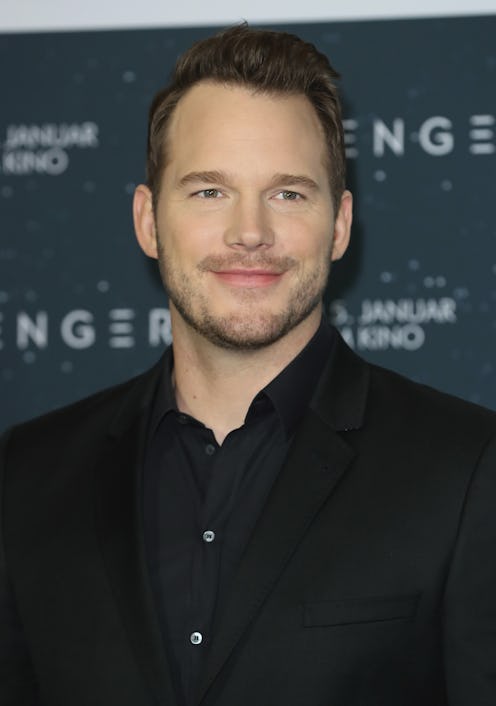
By now, it's common knowledge that the TV and film industry tends to sexually objectify women on-screen, and it's been a long, ongoing battle to expand the way female characters are portrayed in Hollywood. Along the way, some have questioned if we should also be wary of similarly objectifying men, but during a Guardians of the Galaxy Vol 2 press conference in Los Angeles on Thursday, star Chris Pratt made an important point about how objectification can affect men in a different, less limiting way.
When asked whether or not his shirtless scenes in the film point to a double standard, he told reporters that this hasn't hurt his career, but realizes that as a man, he comes from a place of privilege. "There’s a horrifying past around [female objectification]. You have to deal with it separately. It's a sensitive issue. Objectification is good for me," Pratt explained. "When I turned my body into an object, I got paid a lot, and my grandkids will go to a great college. But there’s been more great roles, classically written great roles, for men than women."
For Pratt, at least, the positives have outweighed any negatives, and while he's been vocal that his career was significantly bolstered by his decision to bulk up for parts, he's also been adamant that he isn't bothered by the added attention his looks provide him. That's a luxury that women couldn't necessarily claim, since their objectification could have potentially dangerous ramifications on their real lives, as evidenced by the attacks on Gigi Hadid and Kim Kardashian last year.
Guardians director James Gunn attributed this contrast to the idea that when women are objectified, they're seen solely as sexual objects, while men are often still viewed as fully realized characters. "When Chris Pratt or Chris Evans looks beautiful on screen, they take that and they still go, 'What’s that guy like?'" Gunn said. "[For women,] everything else about their personalities is negated. It’s a difficult thing. It isn’t a one-for-one thing with women objectified."
It's a complicated conversation, to be sure, but Pratt and Gunn's comments highlight the disparity between how men and women are perceived in the media. No matter their gender, all characters should be able to be sexy or smart or strong — or all of the above — without being defined by one singular characteristic. And sometimes, for women, that can be a more difficult hurdle to overcome. But hopefully, as Hollywood continues its plea for more complex female roles, it will become a more attainable gap to close.
Reporting by Anna Klassen.